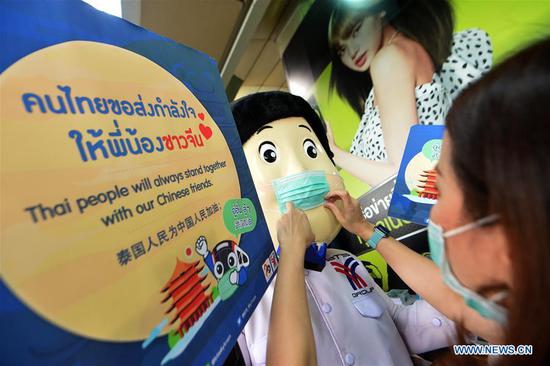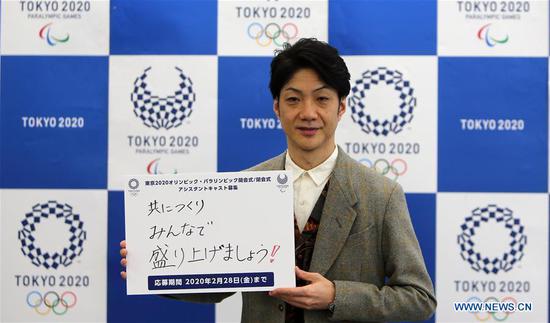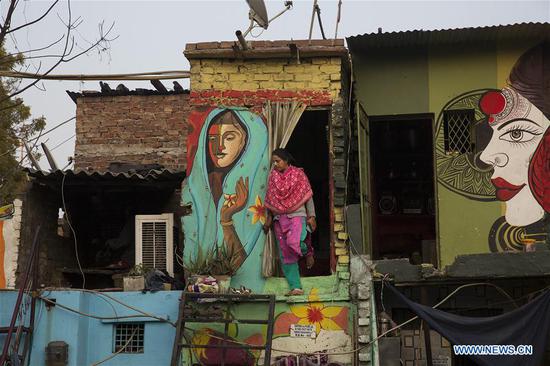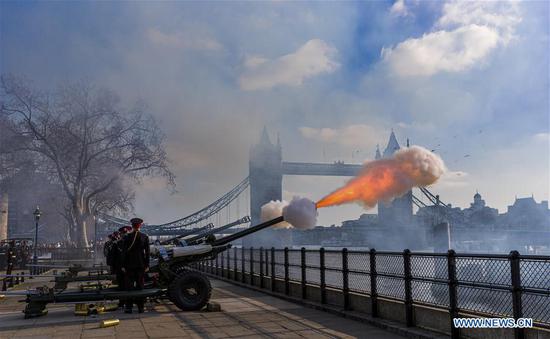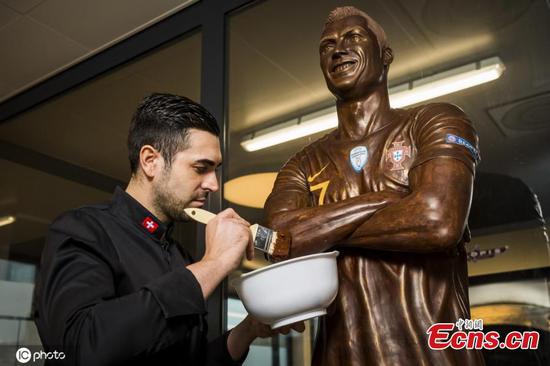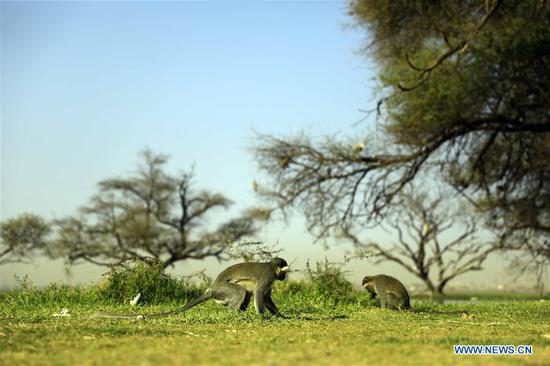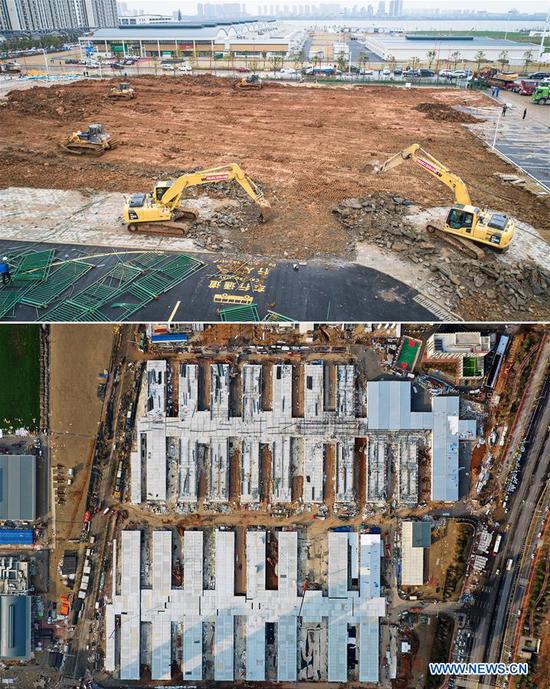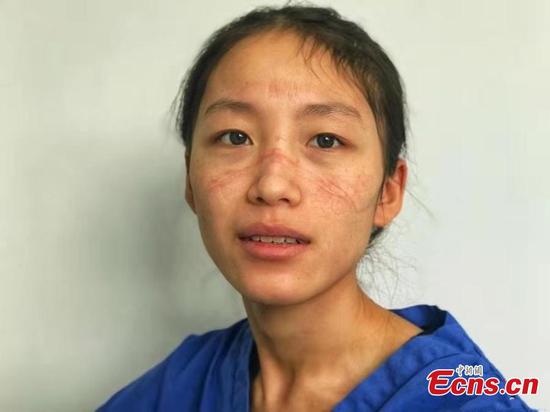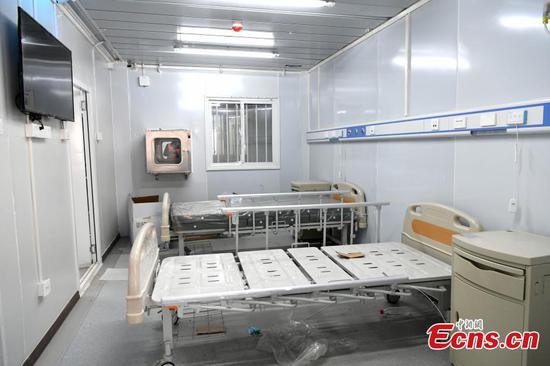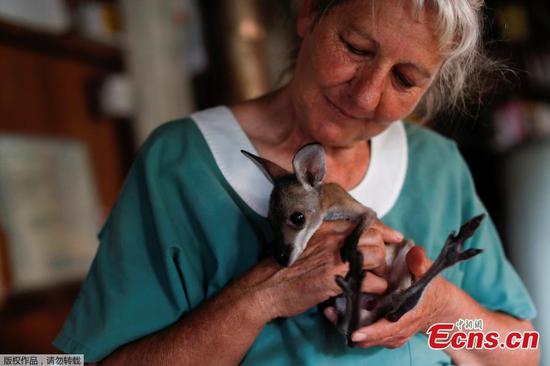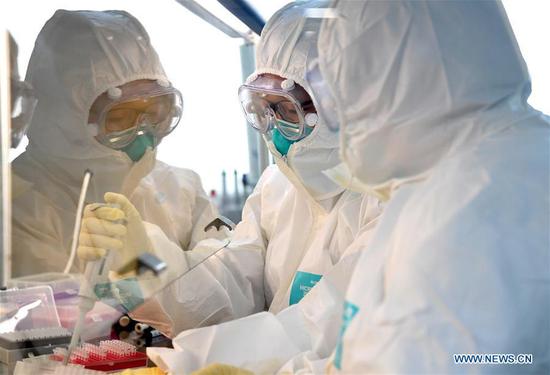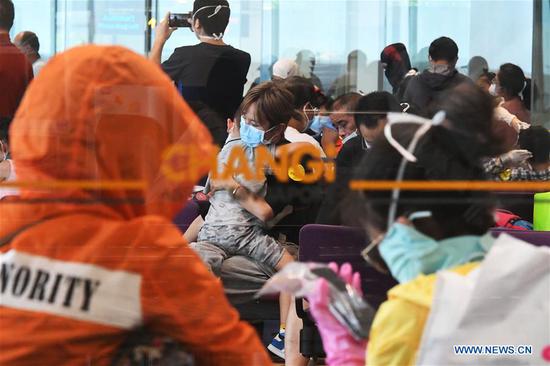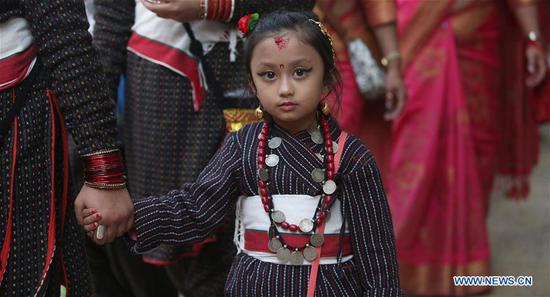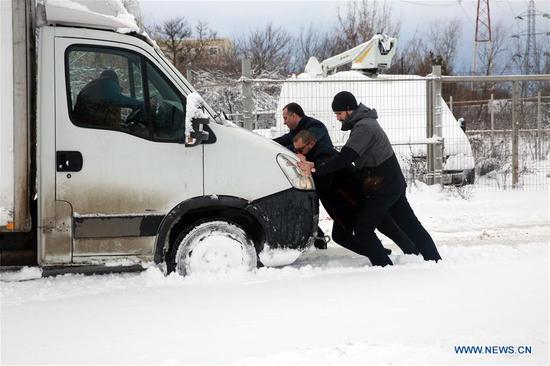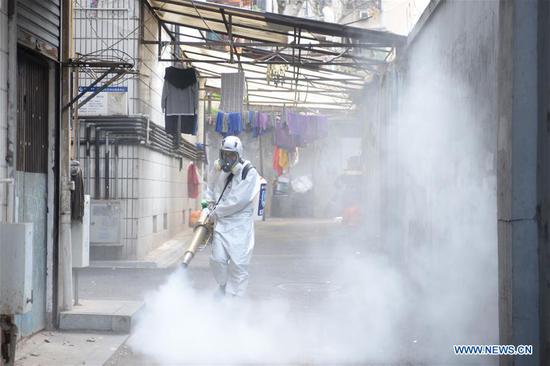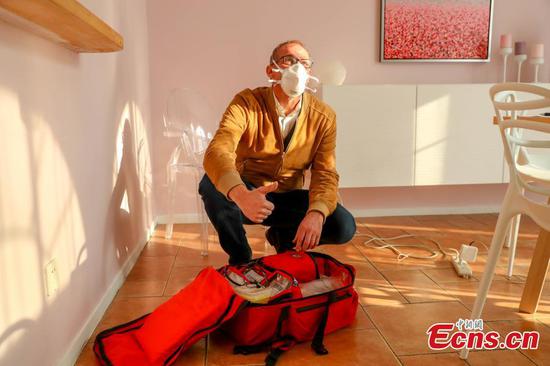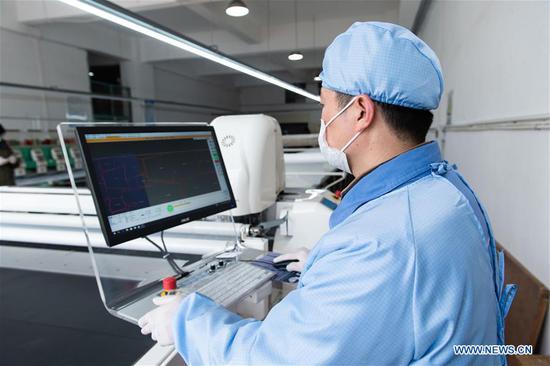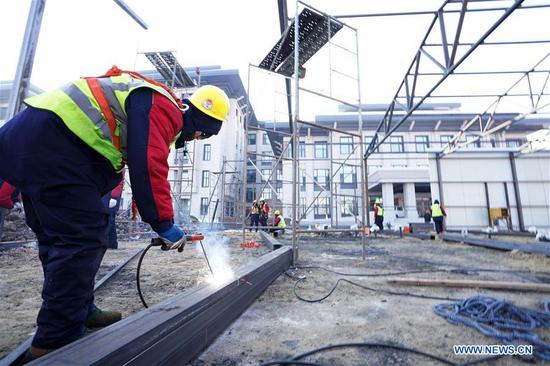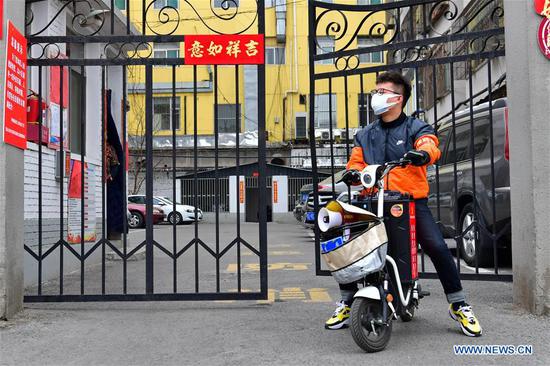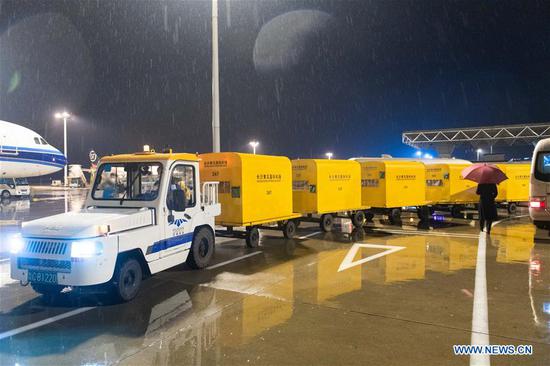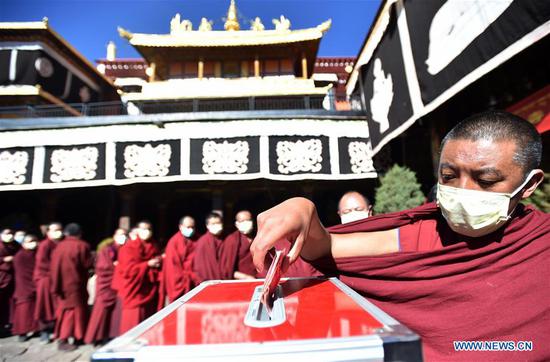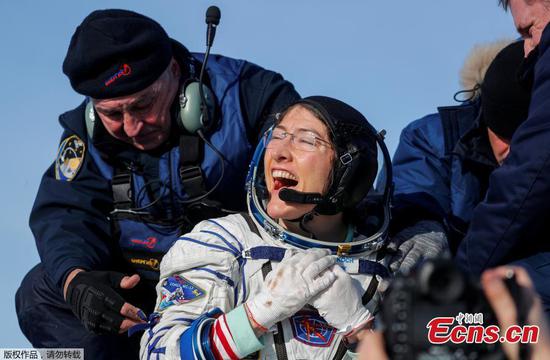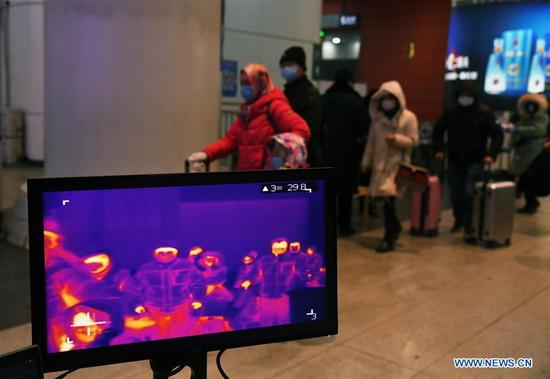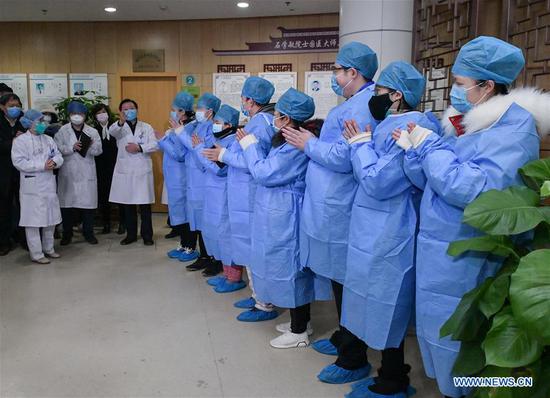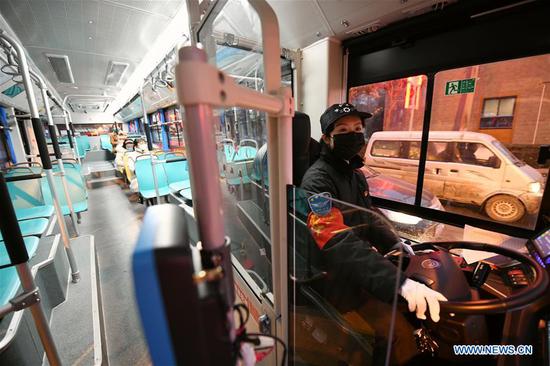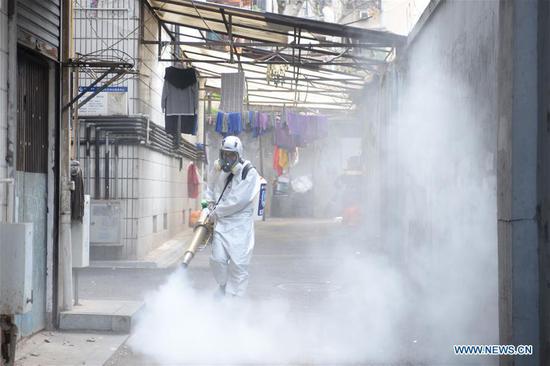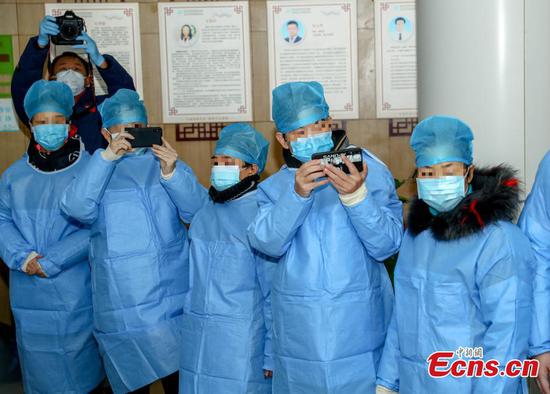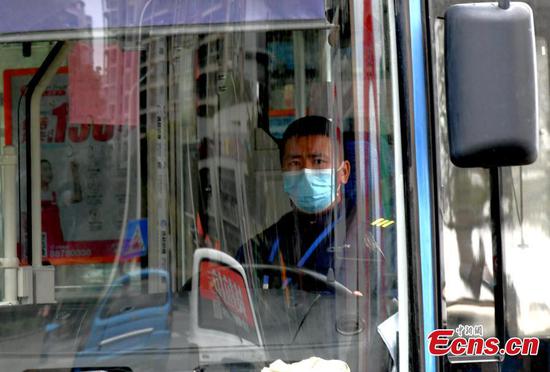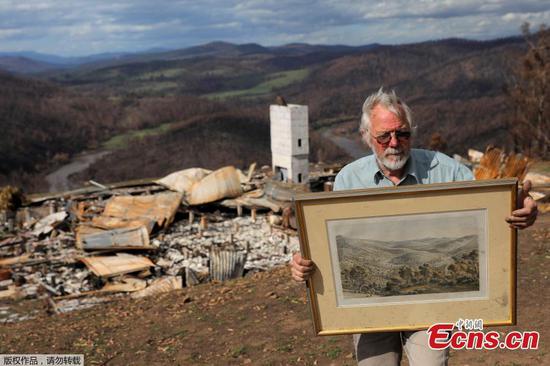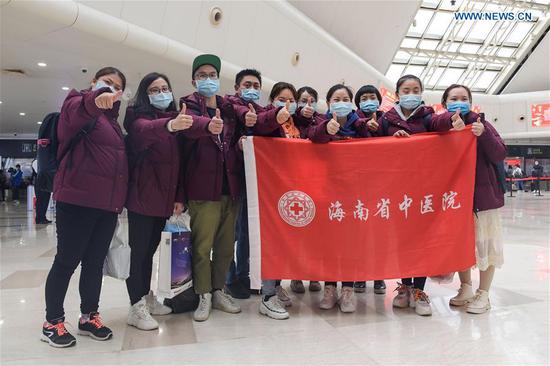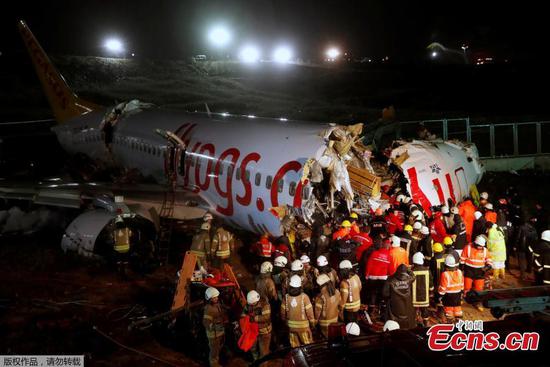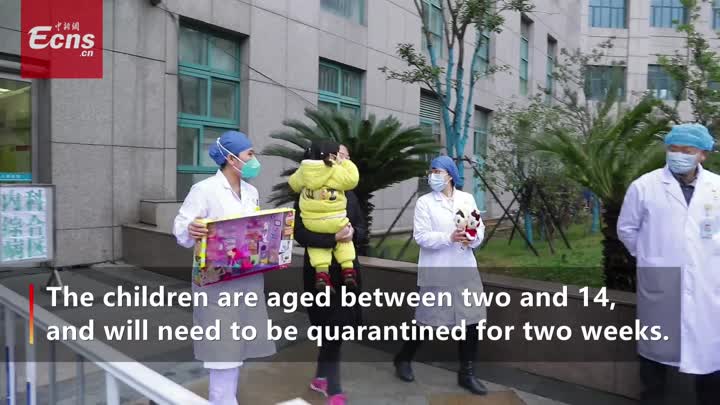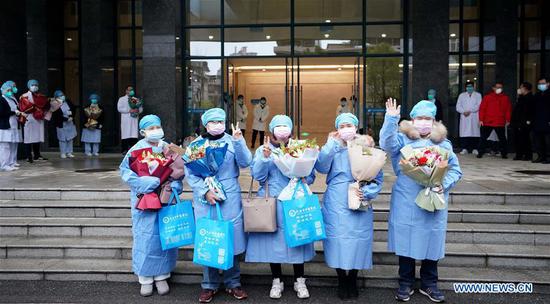
Cured novel coronavirus pneumonia patients are discharged from a hospital in Wuhan, central China's Hubei Province, Feb. 6, 2020. A total of 23 novel coronavirus pneumonia patients were cured and discharged from hospital on Thursday after integrated treatment with traditional Chinese medicine (TCM) and Western medicine. (Xinhua/Wang Yuguo)
With the newly-built hospitals put into service and more medical staff arriving on the frontlines to fight against the novel coronavirus (2019-nCoV) outbreak, China has seen an increase in the number of patients recovering from the novel coronavirus infection.
Greater efforts have been put into related works to increase the hospital admission and recovery rates and lower the rate of infection and fatality, said Guo Yanhong, an official with the National Health Commission, at a press conference Friday in Beijing.
As of Thursday, a total of 1,540 infected people have been cured and discharged from hospitals, Guo said.
Hubei Province had seen 817 patients discharged from hospital after recovery by the end of Thursday, local health authorities said.
A 91-year-old patient infected with the coronavirus has been cured in Hubei's city of Yichang, making him the oldest cured patient infected with the virus in China so far.
Guo told the press conference that expert analysis had been commissioned by health authorities on more than 500 cured cases, covering those with mild symptoms to severe cases.
Wang Guiqiang, director of the infectious disease department under the Peking University First Hospital, said data from Wuhan, the epicenter of the outbreak, showed that severe cases, even critically ill patients, can be cured through reasonable and active treatment.
"This has greatly boosted our confidence," he said at the same press conference.
He also noted that the country's capacity for conducting nucleic acid testing has been improved significantly, and China has enough nucleic acid test reagents in stock for the detection of novel coronavirus infection.
The recent reinforcements of health professionals, especially intensive care staff, will greatly help improve the cure rate and reduce the fatality rate of severe cases, Wang added.
To win the battle against the virus, priority has been given to the virus-hit Wuhan for receiving China's top-level medical resources.
Over 11,000 medical personnel, including 3,000 intensive care specialists and the country's best ICU staff, have been dispatched to Wuhan, Guo said.
China's top experts in intensive care also gathered in Wuhan to host consultations and conduct ward rounds, Guo added.
"We are fully aware of the urgent need for ICU professionals in Wuhan. The current medics have been working for quite a long time and are exhausted both physically and mentally," she said.
The country's health authorities also noticed the shortage of medical resource supply in other cities of Hubei. A one-on-one support system was established in 16 provinces, with each of the provinces helping one city in Hubei to battle the epidemic, according to Guo.
At the same time, around 10,000 hospital beds were added in Wuhan to attend to people with mild symptoms as the city turned public facilities such as gymnasiums into temporary hospitals.
Guo said that the Mobile P3 laboratories and more than 2,000 medical staff from across the country are now tasked with treating patients and providing psychological counseling at these temporary hospitals.
As for public concern about possible cross-infection at the large-scale makeshift hospitals, Guo noted that all patients there are confirmed cases, and medical teams specialized in infection control provide guidance on the spot.
By the end of Thursday, Hubei had 22,112 confirmed cases of the novel coronavirus infection, including 11,618 confirmed cases in Wuhan.









